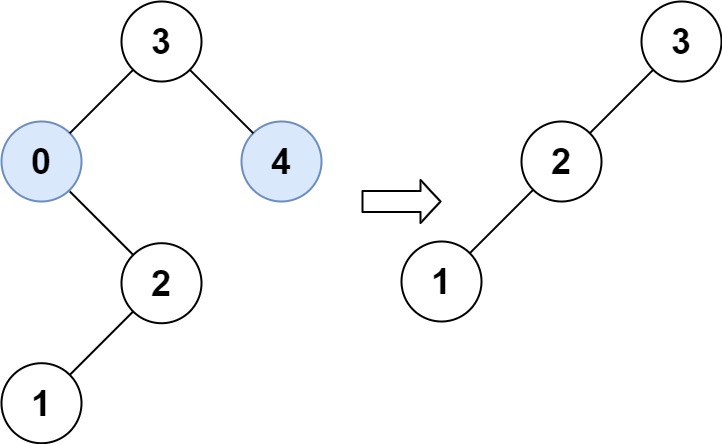Trim a Binary Search Tree - Recursive C++ solution
Problem Statement:
Given the root of a binary search tree and the lowest and highest boundaries as low and high, trim the tree so that all its elements lies in [low, high]. Trimming the tree should not change the relative structure of the elements that will remain in the tree (i.e., any node's descendant should remain a descendant). It can be proven that there is a unique answer.
Return the root of the trimmed binary search tree. Note that the root may change depending on the given bounds.
Example 1:

Input: root = [1,0,2], low = 1, high = 2 Output: [1,null,2]
Example 2:

Input: root = [3,0,4,null,2,null,null,1], low = 1, high = 3 Output: [3,2,null,1]
Constraints:
- The number of nodes in the tree is in the range
[1, 104]. 0 <= Node.val <= 104- The value of each node in the tree is unique.
rootis guaranteed to be a valid binary search tree.0 <= low <= high <= 104
Solution:
The important observation is that: If parent<low => parent->left < low Similarly If parent>high => parent->right> high Thus we can reject the entire subtree depending on this condition.
We can build the tree recursively and return root.
class Solution {
public:
TreeNode* trimBST(TreeNode* root, int low, int high) {
if (root==NULL) return root;
if (root->val < low) return trimBST(root->right, low, high);
if (root->val > high) return trimBST(root->left, low, high);
root->left = trimBST(root->left, low, high);
root->right = trimBST(root->right, low, high);
return root;
}
};